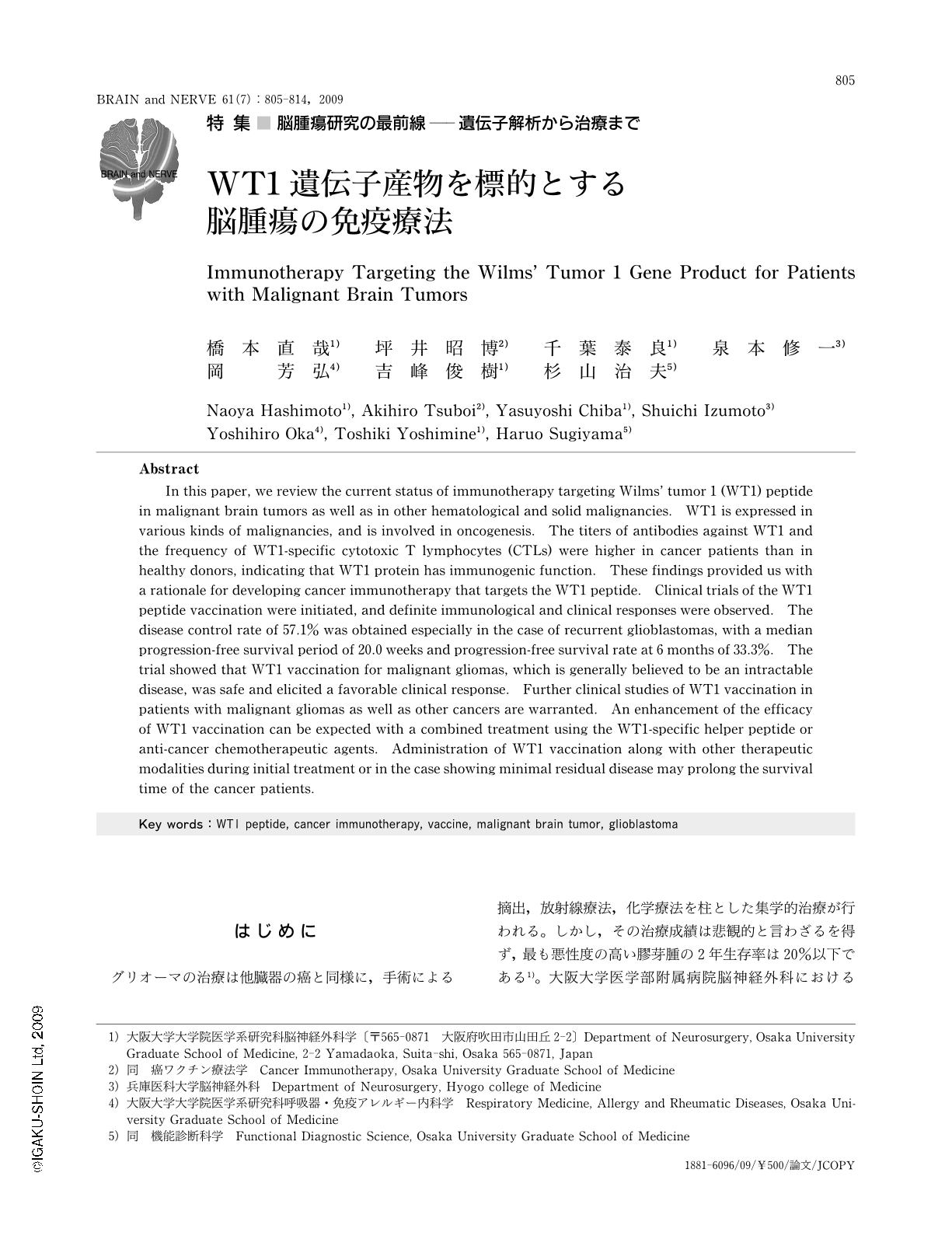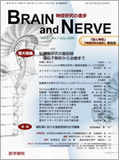Japanese
English
- 有料閲覧
- Abstract 文献概要
- 1ページ目 Look Inside
- 参考文献 Reference
はじめに
グリオーマの治療は他臓器の癌と同様に,手術による摘出,放射線療法,化学療法を柱とした集学的治療が行われる。しかし,その治療成績は悲観的と言わざるを得ず,最も悪性度の高い膠芽腫の2年生存率は20%以下である1)。大阪大学医学部附属病院脳神経外科における1991~2002年の悪性グリオーマの治療成績を後方視的にみても,可及的摘出に放射線・化学療法を加えた膠芽腫患者の生存期間中央値は14.8カ月であり,2年生存率は20.9%であった2)。2006年になって日本で認可された化学療法剤,テモゾロミド(temozolomide)が標準的治療の一部として普及している。しかし,欧米での膠芽腫の治療成績をみる限り,放射線治療単独群に比してテモゾロミド併用群では2.6カ月程度の生存期間の延長をみるのみである3)。
このことは,膠芽腫をはじめとするグリオーマの治療には,放射線・化学療法といった標準的治療に加え得るなんらかの新しい治療法が必要であることを示している。以前から,さまざまなbiological response modifier(BRM),温熱療法,遺伝子治療などが試行され,最近では分子標的薬,粒子線治療,中性子捕捉療法など新たなモダリティーによる治療が行われようとしている。
われわれはWT1(Wilms' tumor 1)遺伝子産物を標的とした癌ワクチン療法を開発,基礎的検討を行い4),再発膠芽腫に対して臨床I/II相試験を行った。その結果,これまでに報告された他の治療法に比べ,良好な成績を報告した5)。この稿ではそれらの結果とともに,WT1免疫療法の基本的事項と臨床応用を概説する。
Abstract
In this paper,we review the current status of immunotherapy targeting Wilms' tumor 1 (WT1) peptide in malignant brain tumors as well as in other hematological and solid malignancies. WT1 is expressed in various kinds of malignancies,and is involved in oncogenesis. The titers of antibodies against WT1 and the frequency of WT1-specific cytotoxic T lymphocytes (CTLs) were higher in cancer patients than in healthy donors,indicating that WT1 protein has immunogenic function. These findings provided us with a rationale for developing cancer immunotherapy that targets the WT1 peptide. Clinical trials of the WT1 peptide vaccination were initiated,and definite immunological and clinical responses were observed. The disease control rate of 57.1% was obtained especially in the case of recurrent glioblastomas,with a median progression-free survival period of 20.0 weeks and progression-free survival rate at 6 months of 33.3%. The trial showed that WT1 vaccination for malignant gliomas,which is generally believed to be an intractable disease,was safe and elicited a favorable clinical response. Further clinical studies of WT1 vaccination in patients with malignant gliomas as well as other cancers are warranted. An enhancement of the efficacy of WT1 vaccination can be expected with a combined treatment using the WT1-specific helper peptide or anti-cancer chemotherapeutic agents. Administration of WT1 vaccination along with other therapeutic modalities during initial treatment or in the case showing minimal residual disease may prolong the survival time of the cancer patients.

Copyright © 2009, Igaku-Shoin Ltd. All rights reserved.


